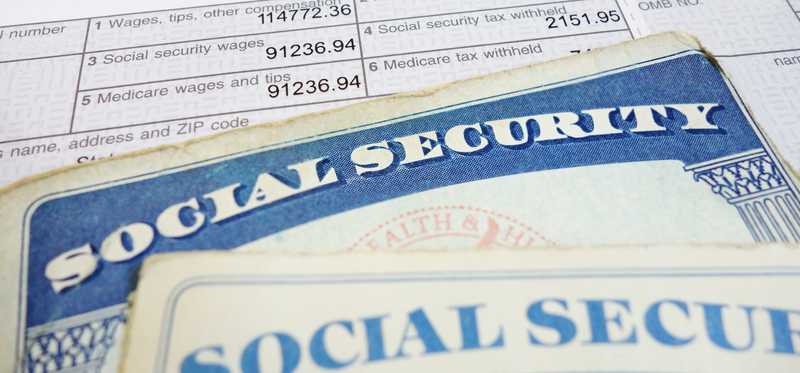7 Financial Scams You Should Watch Out For

7 Financial Scams You Should Watch Out For
Be aware and protect yourself
White-collar crime. Corporate fraud. Financial scam. These terms alone almost water down the devastating impact these types of crimes have on victims. As an economic crimes detective, I've spoken with too many victims to ignore how many struggle with the devastating financial and emotional effects of these crimes for years to come.
Unfortunately, these crimes are not going away anytime soon; the risk-reward ratio is far too skewed in the criminal's favor for them to stop. The financial payout can be huge for scammers, far bigger than a typical robbery or burglary, and tracking them down is a logistical nightmare. Local law enforcement departments struggle to deal with the boundaries of their own jurisdictions and lack of technological resources to successfully chase down criminals around the world. Federal agencies, as well, are often overwhelmed by the sheer volume of reports they receive.
As is often the case, however, an ounce of prevention is worth a pound of cure. With that in mind, let's identify some of the most common types of financial scams that are reported today so that you don't fall victim to similar crimes.
Previous
Next

1. Tax scams
Tax scams are one of the most common types of financial rip-offs. In this scenario, someone calls the unsuspecting victim claiming to be an IRS agent, claiming that the target owes back taxes. If the back taxes are not paid right away, the caller states, local law enforcement will immediately respond to that person's residence to arrest them for tax evasion.
While this might sound like such an outlandish situation that you wonder how anyone could ever fall for it, what the caller is attempting to do is evoke fear in the victim. The crooks do this because they know if they can trigger fear, there is a good chance that type of emotional response will override the target's mental red flags warning them that this situation seems "off." This is a common tactic pursued by scammers.
Fortunately, to avoid falling victim to this scam, all that is needed is to understand a few basic concepts. First, while tax evasion is a real crime, the IRS will never arrest someone simply because they owe taxes. Second, if the IRS determines that you do owe money, they will send you a bill in the mail, not through email. Neither will they initiate contact with a phone call or communicate with you through texts or social media platforms. Finally, tax payers always have the opportunity to question the amount they owe or appeal a bill they believe is not correct.
Previous
Next

2. Social Security scams
In this scam, someone calls the victim claiming to work for the Social Security Administration -- sometimes initial contact is just an automated message with instructions leaving you a number to call. While there are a few variations of this con, the caller usually begins by saying something is wrong with your Social Security account, which requires action on your part to fix. Sometimes, this is as simple as you being told that you need to verify some of your personal information. The caller will later use this information for his benefit. This is just another example of phishing, where bad actors impersonate trusted authorities to gain valuable information from the victim.
In another, more extreme, example, the Social Security impostor tells you that your Social Security account has been suspended because a warrant has been issued for your arrest. To resolve the issue, you will be told to purchase gift or prepaid cards and relay the information to the person on the phone.
Again, this scam plays on the victim's fear, because criminals know how important Social Security is to some people's livelihood. Remember, it is extremely rare that a government official would ever initiate contact with a phone call and they will most certainly not ask you to settle a financial matter with a prepaid or gift card number. You must never give personal information to anyone over the phone without first verifying their identity. To confirm if someone from the Social Security Administration is trying to contact you, call the agency's official number at 1-(800)-772-1213.
Previous
Next

3. Medicare scams
For those who don't know, this year Medicare really is issuing new cards to beneficiaries. The old cards, featuring Social Security numbers (SSNs), are being replaced with new cards and a unique Medicare Benefit Identifier (MBI). This is a worthwhile pursuit, as it should reduce the exposure of many Americans' SSNs. Unfortunately, the occasion has also given rise to a new form of scam. In this Medicare scam, the criminal will call you explaining that there is a problem with your new card. To fix the problem, you will be asked to confirm your SSN.
Again, this is just another phishing scheme where the perpetrator is posing as a legitimate agent in an attempt to gain valuable personal identification information for financial gain. Remember, no government agency, or any legitimate organization for that matter, should ever ask you for your SSN over the phone.
ALSO READ: Just Get Your New Medicare Card? Don't Fall for These Scams
Previous
Next

4. Romance scams
Romantic scams are also extremely common in an age where many people have legitimately found love interests online. In this scenario, fraudsters will pretend to strike up a real relationship with someone on an online dating forum. They will often send their targets long, detailed, but fairly mundane, descriptions of their day and even some poetry -- both which can be mass-produced and used on different victims. After weeks of nurturing this budding relationship, the scammer will lament to their newfound love over some lost opportunity because of a lack of money. The range of excuses could be anything from a plane ticket to come visit the victim or missing out on an amazing investment opportunity. Almost inevitably, the targeted person will offer their romantic interest the money.
After the victim sends the money, almost always through a wire transfer or prepaid card, some type of complication will always arise and the fraudster will ask for more money. First and foremost, this seems like an opportune time to remind everyone that you should never, ever send money via a wire transfer or prepaid card to someone you do not know or have not met. Once that money has been sent, it is gone forever and virtually impossible to get back. Second, be wary of online romantic interests that are never able to meet up in person or express a need for money. Both are two huge red flags.
Previous
Next

5. Grandparent scams
In the grandparent scam, elderly people are the target and the crook will play on their strong feelings for loved ones. What will usually happen is that the scammer will call an elderly person and claim something bad has happened to their grandson or granddaughter. The range of scenarios they give can be anything from a medical emergency to the arrest of their loved one. They will often know and use the grandchild's name and claim to be calling from a foreign land, with a built-in excuse. "While on vacation, your grandson…"
They will then start to pull on the heartstrings. "Johnny said you were the one person he could trust to wire the bail money right away. He also pleaded that you don't tell his parents." Not wanting their loved one to suffer in a foreign jail or have access to the best available medical care, they will often send the money.
Remember, never wire money to someone who you do not know personally! Also, always feel like you can talk to family and friends. Feeling pressured to keep quiet about a situation is a huge red flag that something is awry. In almost all these cases, a simple phone call to the grandson's/daughter's parents would have immediately revealed that their grandchild was safe and sound.
Previous
Next

6. Lottery or grand prize scams
Just as fraudsters will often play on fear to unnerve a victim, they will also try to trigger greed to get you to override your own common sense. In these scenarios the crooks will call you claiming to be a representative of a lottery or well-known entity, such as Publishers Clearing House. Phone numbers can be spoofed so that your Caller ID shows the name of such an organization when they call.
The scammers will then give you the news you've always dreamed about hearing: You've won! It's so exciting! Whether you ever actually entered the Publishers Clearing House contest or played the lottery in Jamaica is entirely beside the point, all that matters is that you're about to receive riches beyond your wildest dreams. All you have to do now is pay the taxes and fees associated with winning before claiming your prize. Wait, what? That's right, the scammer will insist. Just wire the taxes over before claiming your prize. Of course, once the first wire is received more fees will have to be paid. Scammers like milking victims until they finally stop paying.
Again, there are no protections for consumers once money is wired, so never wire money or send prepaid or gift card information to someone you do not know personally. Also, always talk over the situation with a trusted friend or family member. They will help you see through your cloud of emotion and raise several red flags.
ALSO READ: How to Avoid Scams That Ensnared 406,578 People Last Year
Previous
Next

7. Craigslist scams
As e-commerce explodes, several platforms that connect buyers and sellers, such as Craigslist and OfferUp, have exploded in popularity. While millions of people have used these platforms to make beneficial deals, some have fallen prey to fake buyers or sellers trying to scam the other party.
In one recent case I personally investigated, a scammer approached the seller of a recreational vehicle and asked to test drive it. The seller balked, at which case the would-be buyer said the seller could hold the payment for the vehicle while he drove it. The buyer then handed the seller an envelope of what appeared to be $100 bills. After the scammer took off in the vehicle and didn't return for several minutes the seller looked closer at the contents of the envelope and discovered it was full of bills … bills that were marked "FOR MOTION PICTURE USE ONLY."
Other times, sellers will try to solicit advanced payments for items that need to be shipped. Of course, once the payment is received, the item that was being delivered never arrives. To avoid falling victim to these types of scams, remember to never pay for an item up front. If you're meeting the buyer or seller in person, do it at a public place and with a friend or family member.
Previous
Next

Don't be the next victim!
As you can see, scams come in all manner of shapes and sizes, and it's almost impossible to know every single flavor and variation. That being said, there are many universally common principles that can be applied to these situations that, if followed, can prevent you from becoming the next victim.
First, always be leery of any deal or agreement that comes with an imminent deadline. Very few decisions, whether it's an investment opportunity or contest, need to be made right away. This is an element of almost all scams.
Second, always feel free to talk the situation over with a friend or loved one. Scammers will almost always pressure their victim to keep quiet and to not tell anyone else about the situation.
Finally, be especially wary when someone demands you pay through an immediate, irreversible, and, often, untraceable method. This can include wiring money to Western Union (NYSE:WU) or Moneygram International Inc (NASDAQ:MGI) locations, cryptocurrencies, or purchasing gift cards and relaying the information to the scammer. In each of these cases, there are no protections for the one sending the money and there is little risk of the funds being followed to eventually catch the criminal.
Matthew Cochrane has no position in any of the stocks mentioned. The Motley Fool has no position in any of the stocks mentioned. The Motley Fool has a disclosure policy.
Previous
Next
Invest Smarter with The Motley Fool
Join Over Half a Million Premium Members Receiving…
- New Stock Picks Each Month
- Detailed Analysis of Companies
- Model Portfolios
- Live Streaming During Market Hours
- And Much More
READ MORE
HOW THE MOTLEY FOOL CAN HELP YOU
-
Premium Investing Guidance
Market beating stocks from our award-winning service
-
The Daily Upside Newsletter
Investment news and high-quality insights delivered straight to your inbox
-
Get Started Investing
You can do it. Successful investing in just a few steps
-
Win at Retirement
Secrets and strategies for the post-work life you want.
-
Find a Broker
Find the right brokerage account for you.
-
Listen to our Podcasts
Hear our experts take on stocks, the market, and how to invest.
Premium Investing Services
Invest better with The Motley Fool. Get stock recommendations, portfolio guidance, and more from The Motley Fool's premium services.